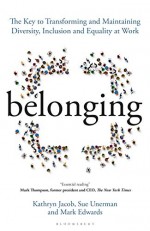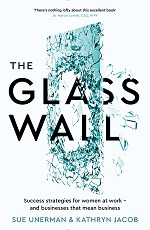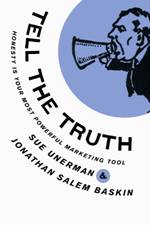 Many briefs have this ambition, whether explicit or implicit. A brief that seeks to drive loyalty, drive frequency or drive penetration wants some kind of behaviour habit change.
Many briefs have this ambition, whether explicit or implicit. A brief that seeks to drive loyalty, drive frequency or drive penetration wants some kind of behaviour habit change.
Yet behaviour change is a tough nut to crack. Latest theories about how advertising works fashionably claim that it reinforces existing habits rather than makes a change. Books like “Herd” by the inimitable Mark Earls show how the behaviour of your tribe affects you, and some ways to effect it.
In my book “Tell the Truth” I write about the opportunity to get behavioural routines to work in your favour – don’t try and change behaviour if instead you can leverage an existing routine instead – this is easier and cheaper.
There are times when there is a massive change in someone’s behaviour. We can absolutely predict when it is going to happen, and by understanding what’s going on in the target audience’s lives in this respect we gain an opportunity to offer up a behaviour substitution that can help to answer a brief.
Back to school is one of those seasonal changes of course, much exploited by supermarkets seeking to sell school uniforms and pencil cases, but less so by brands who could perhaps exploit the extra down time or mental availability of non working mums in the autumn months, especially ones with kids just starting full time education.
This weekend of course is another one. For millions of football fans there is a massive change in behaviour for the next few weeks. Not just for the fans, but for their families. Many brands are gearing up to advertise around the World Cup. Will anyone target fans in the odd few weeks of non action preceding the big competition?
This is yet another argument for the need for real time research about people’s habits and routines. Anyone still basing the totality of their advice on one moment in time diary desk top traditional research without understanding what the consumer is up to now in real time, isn’t doing their job.
Behaviour change number one therefore, needs to occur (if it hasn’t already) within the planning discipline itself and is to make sure that any recommendation for a media schedule is topical, real time and in tune with the real lives of the target market.






Movies lack alpha females too.
Thursday, May 29th, 2014My next book is about women and work and I’ve therefore been discussing the subject with people in our industry and across the UK and US outside our sector. ( And my advertising sample size is a lot more than 35!).
The book is still in development of course, but one senior person in the movie industry believes firmly that Hollywood both sets a tone for our culture and reflects it. He felt that the issue about gender equality is not merely a work issue but a cultural one. That one can’t be changed until the other does, and that movies are a barometer of society’s attitude to gender.
He told me about the Bechdel test, which started as a satirical cartoon and is now widely used to judge the gender bias of movies.
There are just 3 criteria to pass. It has to have at least two women in it, who talk to each other, about something besides a man.
It’s a surprisingly hard test to pass. And of course surprisingly easy to pass if you reverse the criteria (two men, talk to each other, about something besides a woman). Sure there are loads of those – most of my favourite movies and probably yours. The number of my favourite movies that pass the true Bechdel test ? Somewhat fewer, especially if you mandate movies from the last 20 years as this has got worse not better.
The last two brilliant movies I saw at the cinema don’t pass (The Lunchbox and Blue Ruin if you’re interested).
In fact I can’t think of a recent movie I’ve seen that does pass. The punchline of the original Bechdel cartoon published in 1985 portrays one woman saying to the other : “Pretty strict, but a good idea”. To which the other replies with a smile : “No kidding, the last movie I was able to see was Alien”.
Whether you’re alpha male or female, whether you think we work in an industry with gender bias or in a meritocracy, next time you watch a movie apply the Bechdel test to it. Keep a count. It’s an interesting exercise, and so far my count skews dramatically in one direction.
Posted in MediaComment | No Comments »